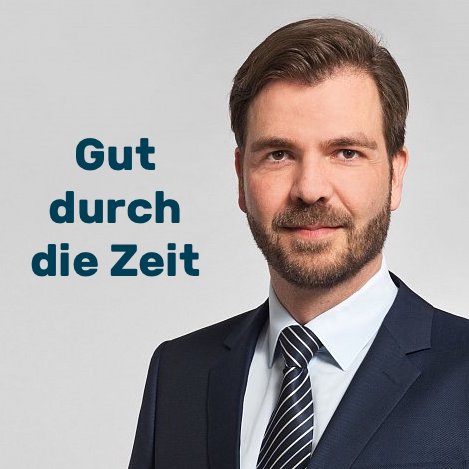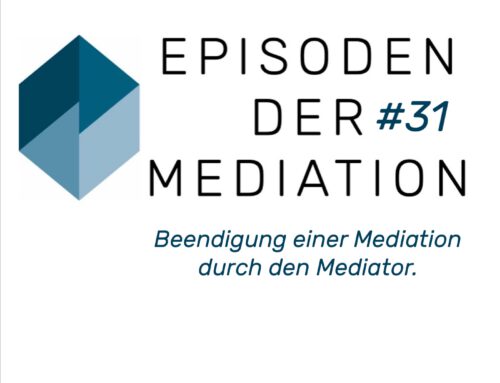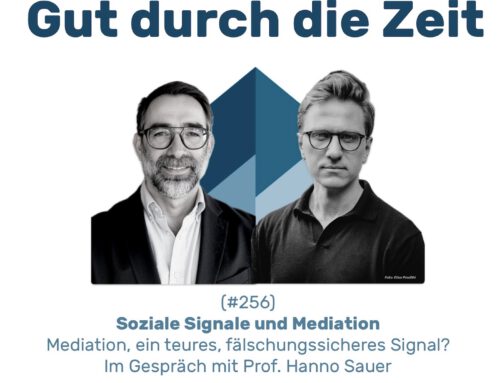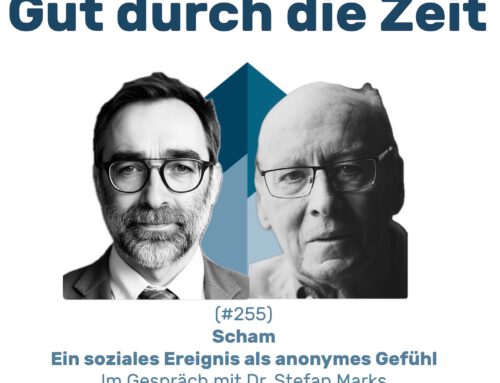INKOVEMA Podcast „Well through time“
#27 – The StaRUG is in force. Paradigm shift in corporate reorganisation?
Constructive error and conflict culture for the reorganisation and restructuring of economically distressed companies. In conversation with Prof Stephan Madaus (MLU Halle-Wittenberg).
Well through time. The podcast about mediation, conflict coaching and organisational consulting.
Prof Dr Stephan Madaus has been teaching civil procedural law, in particular German and foreign insolvency law, at Martin Luther University Halle-Wittenberg since 2014 and is a recognised expert in the law of judicial and extrajudicial corporate restructuring. In the legislative process for the SanInsFoG (Sanierungsrechtsfortentwicklungsgesetz)one part of which is the so-called StaRUG is, the law on a stabilisation and restructuring framework, Mr Madaus was consulted several times. The laws are said to have a major impact on overcoming the economic consequences of the coronavirus crisis. Our podcast episode provides an insight into the practice of law – and the question of what this has to do with mediation.
Contents:
The StaRUG will significantly change the restructuring of companies in Germany. For the first time, it offers a legal framework for being able to fundamentally reorganise outside of insolvency. And such a private or debtor-driven reorganisation is accompanied by special instruments and possibilities. Some are already talking about a paradigm shift in reorganisation issues that would go far beyond the requirements of the EU Directive. These European requirements have become even more explosive as a result of the coronavirus crisis and its economic consequences. And now they have been implemented.
In over 100 new paragraphs, a modern, out-of-court reorganisation and restructuring law is being developed in four parts. drawn.
- Part 1: Early crisis detection and crisis management (§ 1)
- Part 2: Stabilisation and restructuring framework (§§ 2- 92)
- Chapter 1: Restructuring plan
- Chapter 2: Stabilisation and restructuring instruments
- Chapter 3: Restructuring officer
- Chapter 4: in force in future
- Chapter 5: Contestation and liability law
- Chapter 6: Employee participation and creditors' advisory council
- Part 3: Reorganisation moderation (§§ 94 – 100)
- Part 4: Early warning systems (§§ 101 – 102)
The core idea and focus of the StaRUG is the financial stabilisation and restructuring of companies that are likely to run into difficulties in the foreseeable future. According to the legislator, the foreseeable period is – the period between 12 and 24 months, not before and not after. But this is not the only problem with the new law.
For Professional mediators and business moderators the third part of the StaRUG could prove interesting in the coming years if reorganisation practice does indeed develop into a future-oriented reorganisation culture (Flöther).
Left:
- Chair of Prof Madaus MLU-Halle-Wittenberg
- Stephan Madau's website – with an informative and well-maintained blog





Leave A Comment